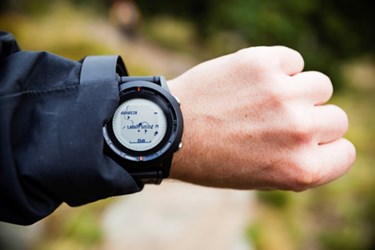FDA Expected To Add Value To Wearable Medical Device Market

With a wearable device market projected to surge to $41 billion by 2020, tech giants and startups alike are rushing to investigate new opportunities for wearable tech. Though regulatory issues were once seen as an obstacle, Reuters reports that the FDA will play a critical role in adding credibility to devices designed to manage chronic illness, and wearable health management is expected to help meet the demands of the Affordable Care Act’s (ACA) value-based healthcare.
In January, the FDA released a draft guidance stating its planned approach to low-risk devices, which indicated the agency would not regulate “general-wellness” products, such as Fitbits and calorie counters.
The Verge reported that many in the device industry were lobbying to ensure their products experienced minimal regulatory interference and were waiting to see where the FDA intended to draw its regulatory lines. Others — reported Reuters — are looking forward to regulatory oversight, expecting clinical studies and FDA approvals to give their products a clinical edge with consumers and payers, who could potentially be convinced to cover the price of the device.
“Consumers, doctors, payers all want to know if a product provides clinical benefit. Working with the FDA is one way to get the ability to market that benefit,” said Julie Papenek, an investor from venture capital firm Canaan Partners, to Reuters.
Expecting an onslaught of applications, Bakul Patel — the FDA’s associate director for digital health — told Reuters that the agency would be looking to fill three new positions to help facilitate the evaluation of medical-grade devices.
Soreon Research projects that the wearable healthcare market will surge from an estimated $2 billion in 2014 to more than $41 billion in 2020 and names diabetes, obesity, sleep disorders, and cardiovascular disease as the largest segments for potential growth. This figure is exponentially greater than what Transparent Market Research projected in 2013 — seven times more.
“We’re going to see a lot of devices over the next couple of years for every chronic condition of mankind that are FDA-regulated because they all involve a treatment loop,” said Eric Topol, a digital health expert at Scripps Translational Science Institute.
According to Topol, many would-be breakthroughs in wearable medtech have developed top-tier sensors capable of collecting data from a myriad of sources. All of that data — said Topol — will be meaningless unless the developer knows what to do with it.
Expertise in big data analytics is what has many entrepreneurs flocking to tech giants like Apple, Alphabet, and Samsung, who are busy setting up data platforms to house and interpret the data flowing in from top-name medical devices, providing a clearer image of disease than has ever been possible.
According to the report by Chilmark Research, next-generation devices will provide “delivery of ongoing, virtual care” and will keep people out of the hospital as much as possible, an innovation that experts predict will both save lives and reduce cost.
“The U.S. healthcare system’s gradual but steady shift towards value-based care has unleashed a new wave of opportunities for health IT vendors of all stripes,” said authors of the report.
But with increased opportunity comes increased vulnerability — many warn. While these recent projections have inspired enthusiasm, they have also prompted renewed concern — reported by Forbes and CNBC — that security issues and the potential for hackers to steal or manipulate personal information should not be underestimated.
